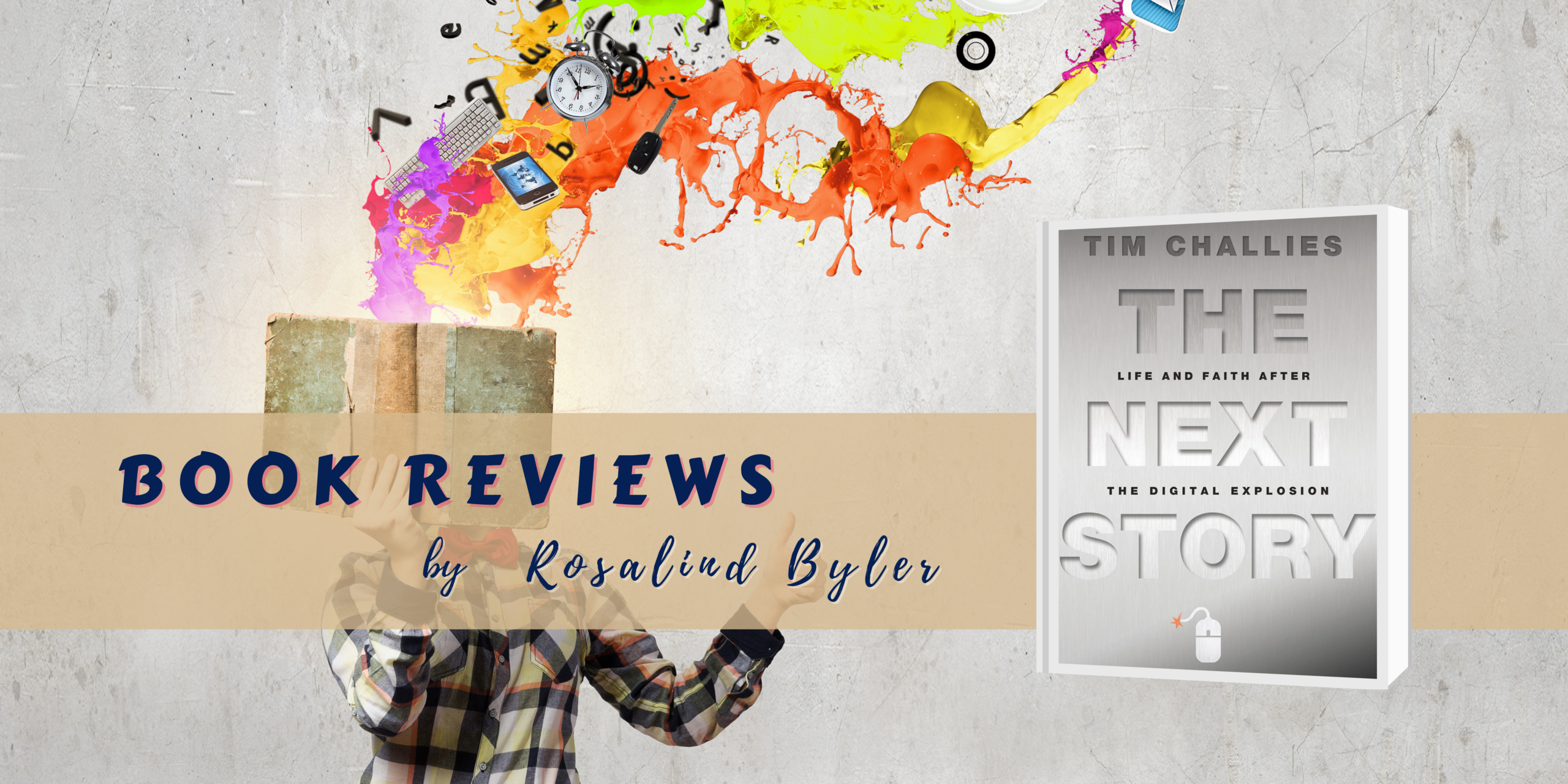Book Reviews
The Next Story: Life and Faith after the Digital Explosion, by Tim Challies | Review by Rosa Byler

Over the last forty years, development of digital technology has gradually edged us into what could now be called a “digital culture.” How have Christians dealt with the intersection of technology and faith? The Next Story suggests two extreme types of responses: to embrace the latest discoveries with enthusiasm, seeing no need to suspect any “neutral” invention; or to attempt to withdraw completely, hating even the garment spotted by technology. A third option, the subject of this book, is to respond with “disciplined discernment.” This involves looking carefully at new realities, evaluating them and considering possible consequences of their use. It means relying on the Holy Spirit to speak wisdom to us through the Word of God, which after all has guided, taught, and convicted humanity through every era and every change since the beginning of time.
Who is Tim Challies, and what qualifies him to speak into this issue? A pastor, writer, and self-confessed lover of gadgets, Challies acknowledges that this book grew out of “an uneasy feeling” that prompted a series of questions. His work as a writer and editor involves using the latest high-tech communications devices; as he found these demanding more and more of his time and attention, he began to wonder whether he owned and controlled them or was being dominated and changed by them. His quest for answers led him to others who had researched the theory of technology (how it operates), the experience of technology (how we use it), and even quite a few that focused on integrating the two. He felt that a third dimension was missing: the theology of technology (an understanding of God’s purpose for technology and how He expects us to use it.) Picturing theory, experience and theology as three intersecting circles, Challies suggests that we focus on living where all three converge. (It does not take a geometry major to see that this intersection will resemble what the KJV calls “strait…and narrow.”)
In the first part of the book, Challies defines what he calls the mandate of technology—our God-given assignment to have dominion over the created world. Because of the Fall, our hearts are programmed toward idolatry; technology, since it seems to effectively meet our needs, quickly becomes an idol and an enabler of other idols. After showing us how technology is ecological (it does not just add itself to society; it transforms that society) as well as biological (it can change even the way our brains function), Challies gives an overview of digital history. This section closes with an “aside” in which we are encouraged to ask questions of new devices. Why were they designed? What problems do they solve? What new problems are created? Most importantly, what are they doing to our hearts?
The second and longer section of the book covers specific applications of “disciplined discernment”; how do we glorify God with our technologies rather than letting them use us? Challies outlines some of the challenges as well as opportunities we now face, such as new perceptions of privacy, visibility, and accountability. He demonstrates the increasing distraction and inability to focus, think deeply or meditate that are the result of “multi-tasking” (a misnomer, he says) and of keeping our brains in “a state of continuous partial attention.” Efficiency and speed have become idols, and Christians are not immune (think of the One Minute Bibles and Two Minute Devotionals now available).
Communication and language are gifts of God; His Word teaches us that the tongue speaks what is in the heart. While social media has been used to influence the church in helpful ways, much of what we see communicated publicly is shallow, trivial, and self-focused. Challies reminds us of Scriptural principles for the use of the tongue: discretion, restraint, and thoughtfulness. Truth and love “are twin pillars that should uphold all of our communication.”
”More is better” seems to be the prevailing attitude towards information. This can lead to information overload and what Challies calls “truth by consensus,” which tends to ignore authority and human nature and attempts to redefine truth. While we have always been called upon to exercise discernment about what we read and hear, he suggests that the entire system through which we acquire facts is “being thrown into doubt”--and since truth and authority are closely related, Christians ought to give serious thought to anything that threatens existing structures of authority.
Challies explores the theory and experience of technology with competence, but those are merely the backdrop for the theology of technology (which is not just verses cut-and-pasted in to Christianize the discussion. Scriptural teaching and awareness permeate the book.) He cannot be accused of retreating in blind panic from something he has not thoroughly investigated and experienced; having happily embraced technology’s usefulness, he is able to take a more comprehensive and balanced look at its shortcomings.
This is a book you will want to own--perhaps several copies, to share! Whether you are a “digital native” who is enjoying the surf and hasn’t yet seen the cannibals, or a technological dinosaur suspiciously tasting the virtual foliage, or find yourself anywhere in between, this book will instruct and challenge you. It is well-written, yet readable; and sections entitled “Aside,” “Application,” and “Questions for Reflection” appear in every chapter to provoke self-examination or discussion.